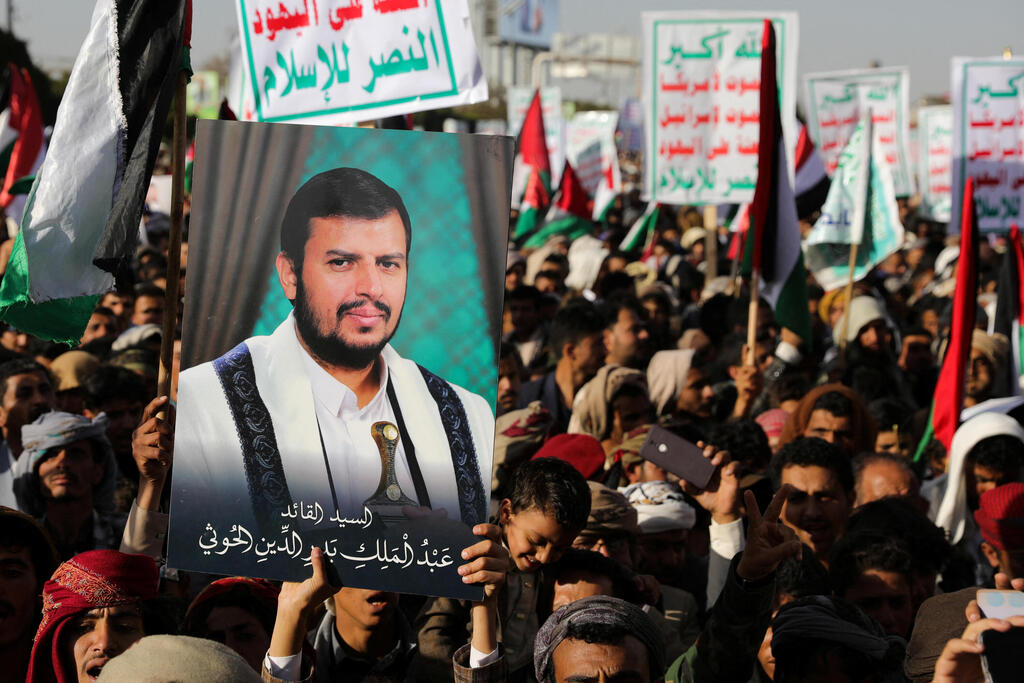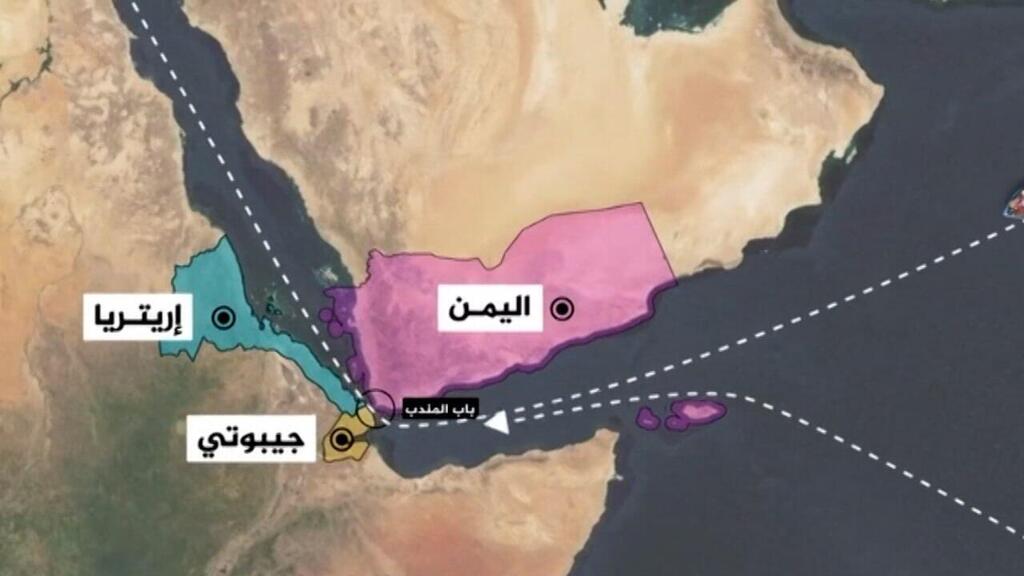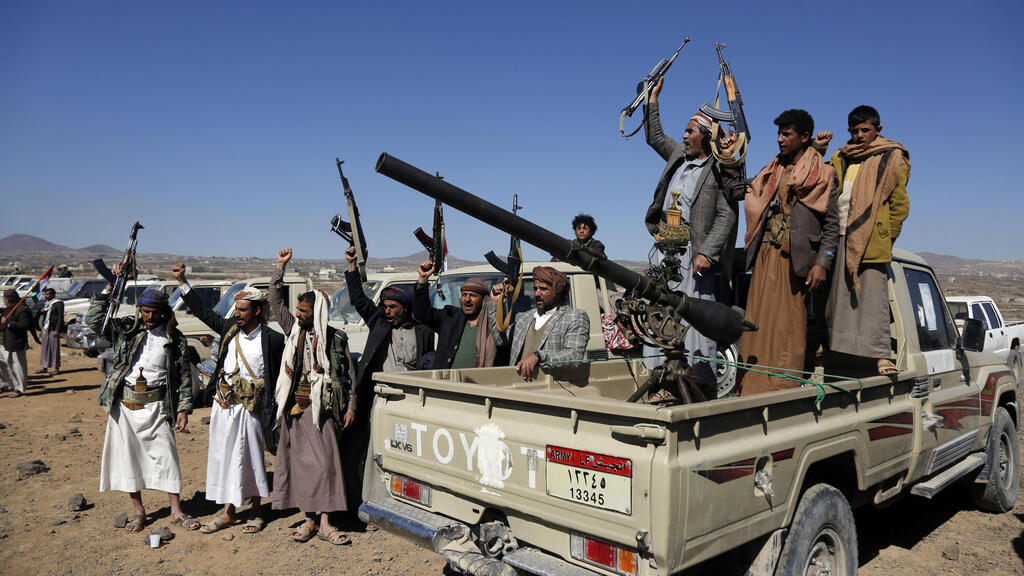The Iran-backed Houthi rebels in Yemen opened a new front in the Gaza war, targeting international shipping routes - involving many countries into the conflict as their ships came under fire in the Red Sea. The fighting in the region escalated last week when a military coalition led by the United States attacked Houthi military sites in Yemen.
More stories:
However, it seems that for now, the Houthis continue their activities and continue to take responsibility for a series of attacks against ships despite the coalition’s strikes. On Tuesday, Houthi military spokesperson Yahya Sarea announced that the rebels had attacked a ship heading to Israel "using naval strike missiles," after it did not respond to the warning calls it received. Thus, it appears the Yemeni front will continue to engage Israel and the world in the near future, especially in light of its impact on the global economy.
At Bab al-Mandab, a strait situated between Yemen and the African countries of Djibouti and Eritrea, essentially connects two hemispheres and allows cargo ships arriving from Asia and Africa to reach the Middle East region and continue to Europe and to the Americas.
Due to security threats in the region, many ships have been making the alternative, longer journey around the strait — circumventing the entire African continent — prolonging the voyage by many days and increasing the overall costs incurred during the trip.
Prior to the United States and its allies’ recent attack in Yemen last week, the UN Security Council had approved a decision condemning the Houthi attacks in the Red Sea and demanding an immediate cessation of attacks on commercial ships.
The Houthi rebels’ Supreme Political Council, headed by Muhammad Ali al-Houthi, called the UN decision a "political game," asserting the terror group would continue to threaten and target Israeli ships or those heading to Israel, claiming that their operations are "successful and impact Israel's economy."
According to Abdul-Malik Badruldeen al-Houthi, the Houthi rebels’ leader in Yemen, their goal has been achieved, causing Israel to suffer significant economic losses. However, it should be noted that the impact on Bab al-Mandab’s security affects other countries, not just Israel.
Many ships passing through the Bab al-Mandab strait continue on to the Suez Canal, a crucial national project and a significant source of income for Egypt.
4 View gallery


Protestors with sign of Houthi leader Abdul-Malik Badruldeen al-Houthi
(Photo: Reuters/ Khaled Abdullah)
Recently, a photo was published on the Suez Canal Authority's Facebook page, showing Egyptian President Abdel Fattah al-Sisi meeting with the CEO of a French international shipping line, emphasizing the issue's importance to the country. Between June 2022 and June 2023, the Suez Canal broke income records, generating a revenue of $9.4 billion.
However, Egypt has claimed in recent months that the incidents in the Red Sea haven’t significantly affected the canal or Egyptian economy. Egypt has also chosen not to join the international coalition against the Houthis, who praised Egypt for its stance.
4 View gallery


Egyptian President Abdel Fattah al-Sisi in a meeting with French shipping officials
(Photo: via Facebook)
On December 17, the head of the Suez Canal Authority, Osama Rabie, said in a statement that the passage through the canal remains active. He added that since November 19, only 55 out of 2,128 ships chose to navigate the longer route via the Cape of Good Hope.
However, in recent days, Rabie acknowledged a decline of about 40% in the canal’s revenues between January 1 and 11 year-on-year. Rabie's recent statements indicate an economic impact on the canal’s revenues raised questions in Egypt, considering the serious impact on revenue within a short period of just three weeks.





